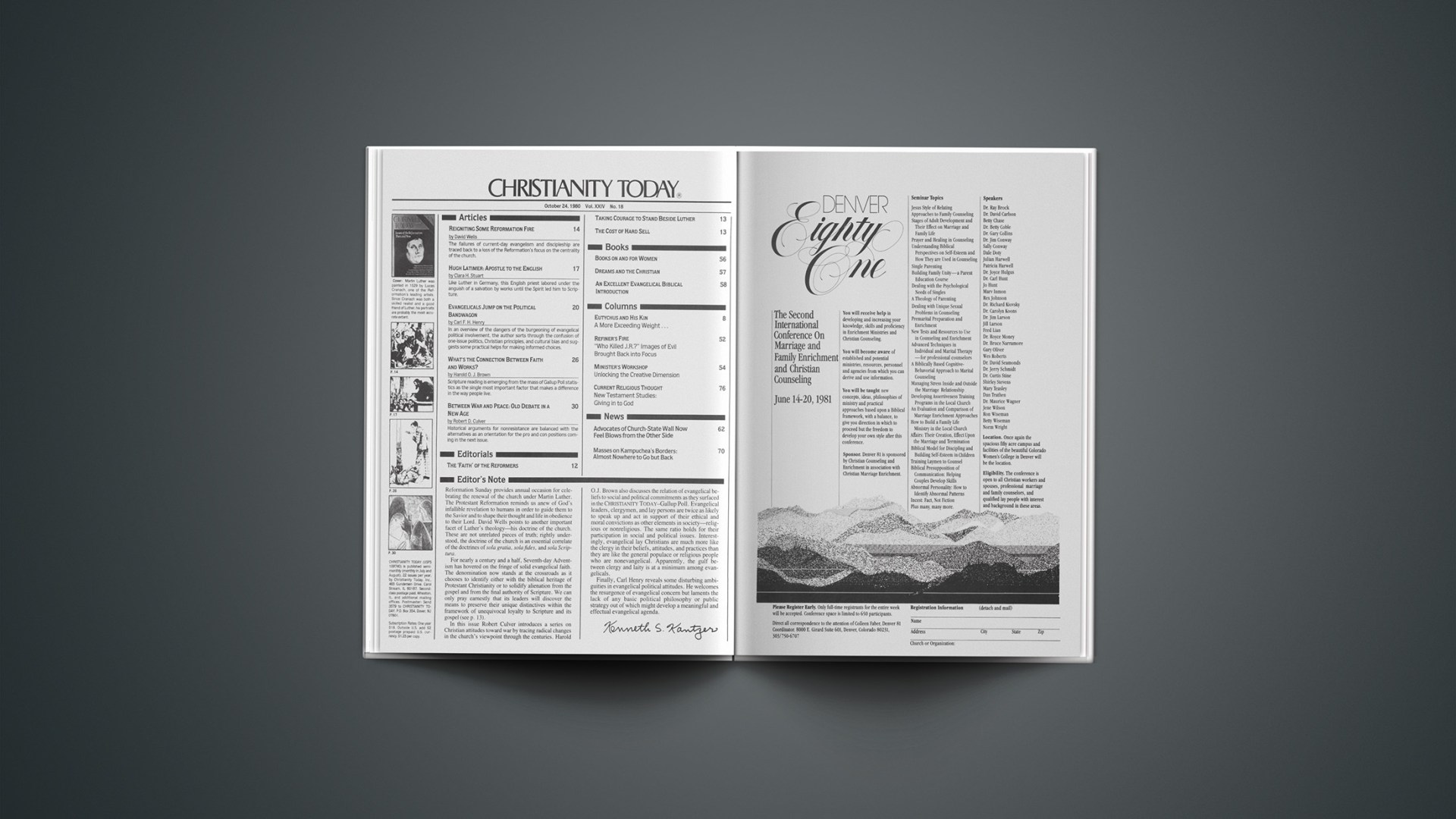Reformation Sunday provides annual occasion for celebrating the renewal of the church under Martin Luther. The Protestant Reformation reminds us anew of God’s infallible revelation to humans in order to guide them to the Savior and to shape their thought and life in obedience to their Lord. David Wells points to another important facet of Luther’s theology—his doctrine of the church. These are not unrelated pieces of truth; rightly understood, the doctrine of the church is an essential correlate of the doctrines of sola gratia, sola fides, and sola Scriptura.
For nearly a century and a half, Seventh-day Adventism has hovered on the fringe of solid evangelical faith. The denomination now stands at the crossroads as it chooses to identify either with the biblical heritage of Protestant Christianity or to solidify alienation from the gospel and from the final authority of Scripture. We can only pray earnestly that its leaders will discover the means to preserve their unique distinctives within the framework of unequivocal loyalty to Scripture and its gospel (see p. 13).
In this issue Robert Culver introduces a series on Christian attitudes toward war by tracing radical changes in the church’s viewpoint through the centuries. Harold O.J. Brown also discusses the relation of evangelical beliefs to social and political commitments as they surfaced in the CHRISTIANITY TODAY—Gallup Poll. Evangelical leaders, clergymen, and lay persons are twice as likely to speak up and act in support of their ethical and moral convictions as other elements in society—religious or nonreligious. The same ratio holds for their participation in social and political issues. Interestingly, evangelical lay Christians are much more like the clergy in their beliefs, attitudes, and practices than they are like the general populace or religious people who are nonevangelical. Apparently, the gulf between clergy and laity is at a minimum among evangelicals.
Finally, Carl Henry reveals some disturbing ambiguities in evangelical political attitudes. He welcomes the resurgence of evangelical concern but laments the lack of any basic political philosophy or public strategy out of which might develop a meaningful and effectual evangelical agenda.










